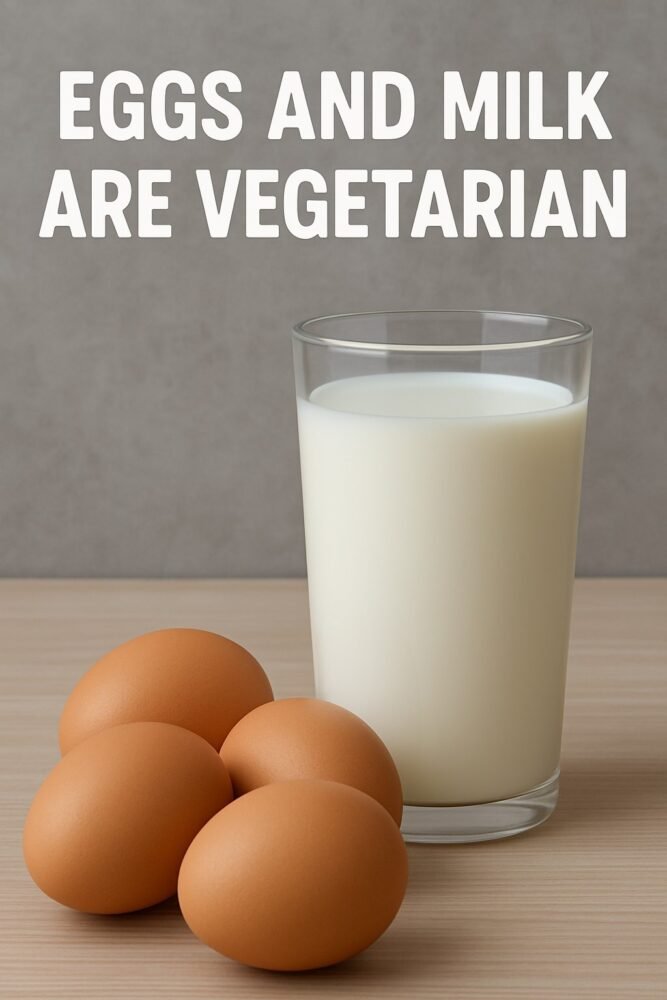With vegetarianism being a key dietary and cultural identity for millions of Indians, the debate over whether eggs are vegetarian or non-vegetarian continues to stir heated discussions in homes, schools, and religious circles. However, with growing awareness and scientific backing, the claim that eggs are non-veg is being steadily debunked — especially when it comes to the most commonly consumed eggs in India.
Understanding Vegetarianism
Vegetarianism, by definition, involves abstaining from the consumption of animal flesh — meaning meat, poultry, fish, and seafood. It does not necessarily exclude animal byproducts such as milk, cheese, or honey, which are produced without slaughter.
The confusion arises when people conflate “animal product” with “animal flesh.” But there is a clear distinction in the scientific and dietary community: vegetarian diets avoid killing animals, but often include products derived from them that don’t involve harm or death.
What Are the Eggs We Eat?
The eggs commonly consumed — the white-shelled or brown-shelled chicken eggs — are typically unfertilized. This means they do not contain a developing embryo and cannot turn into chicks.
Fertilization in poultry occurs only when a hen mates with a rooster. In industrial egg production (and nearly all eggs sold in Indian grocery stores), roosters are not present, so hens lay eggs without any possibility of fertilization. These unfertilized eggs are essentially ovum, similar in concept to a menstrual discharge, and contain no living organism inside.
According to the Indian Council of Medical Research (ICMR) and the Food Safety and Standards Authority of India (FSSAI), such eggs are classified as an animal byproduct, not meat. They contain no animal tissue, making them scientifically acceptable within many vegetarian frameworks.
But Isn’t It Still From an Animal?
So is milk. So is honey. So is cheese. Milk is produced by cows, buffaloes, and goats, yet it’s widely consumed by vegetarians. Why is this acceptable, while eggs face stigma?
The hypocrisy is striking. Both milk and eggs are animal secretions. Neither involves killing the animal. However, cultural and religious interpretations in India have traditionally leaned towards milk being “satvik” (pure), while eggs are often labeled “tamasic” or impure — not based on science but on inherited traditions.
In fact, the World Health Organization (WHO), Harvard T.H. Chan School of Public Health, and National Institute of Nutrition (India) recognize eggs as a high-quality, vegetarian-friendly protein source, especially beneficial for children, pregnant women, and vegetarians struggling to meet protein needs.
Why This Matters for India
India remains one of the most protein-deficient countries in the world, particularly among vegetarians. According to a recent National Family Health Survey (NFHS), nearly 1 in 2 Indian women are anemic, and protein intake among vegetarian populations is below global recommendations.
Eggs are a nutrient-dense, affordable, and accessible solution. They are rich in protein, B12, iron, choline, and essential fatty acids — many of which are difficult to obtain from a purely plant-based diet. Classifying them as non-vegetarian creates an unnecessary cultural and nutritional barrier.
Schools in Tamil Nadu, Odisha, and Jharkhand have already begun adding eggs to mid-day meals to fight malnutrition. Still, many parents object based on the misconception that eggs are non-veg — even though scientific literature clearly supports their vegetarian status (when unfertilized).
Time to Break the Myth
It’s time for India to step into the 21st century of nutritional understanding. Holding onto unscientific notions from 400 BC harms not only national health but also children’s futures. If milk is vegetarian, then so are unfertilized eggs. The only difference is tradition — not biology.
The Indian Medical Association (IMA) and dietitians across the world encourage greater awareness and openness around egg consumption in vegetarian diets. In fact, many Indian vegetarians — particularly lacto-ovo vegetarians — already include eggs in their meals.
Let’s align our beliefs with science. Let’s fight protein deficiency with fact, not folklore.If you consider milk vegetarian, there is no scientific reason to consider eggs as non-vegetarian — at least the unfertilized ones. It’s time to update our understanding, for better health, better nutrition, and a more informed India.
#EggsAreVeg #ScienceOverStigma #ProteinForIndia








